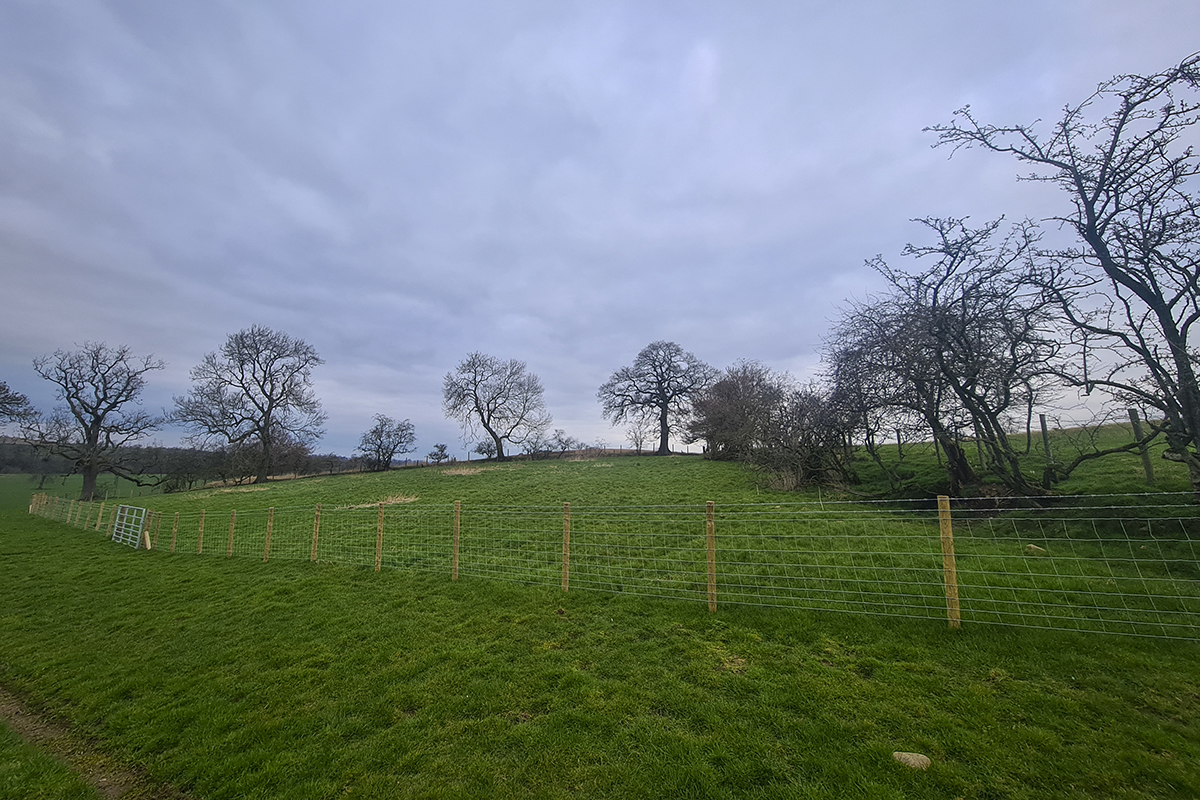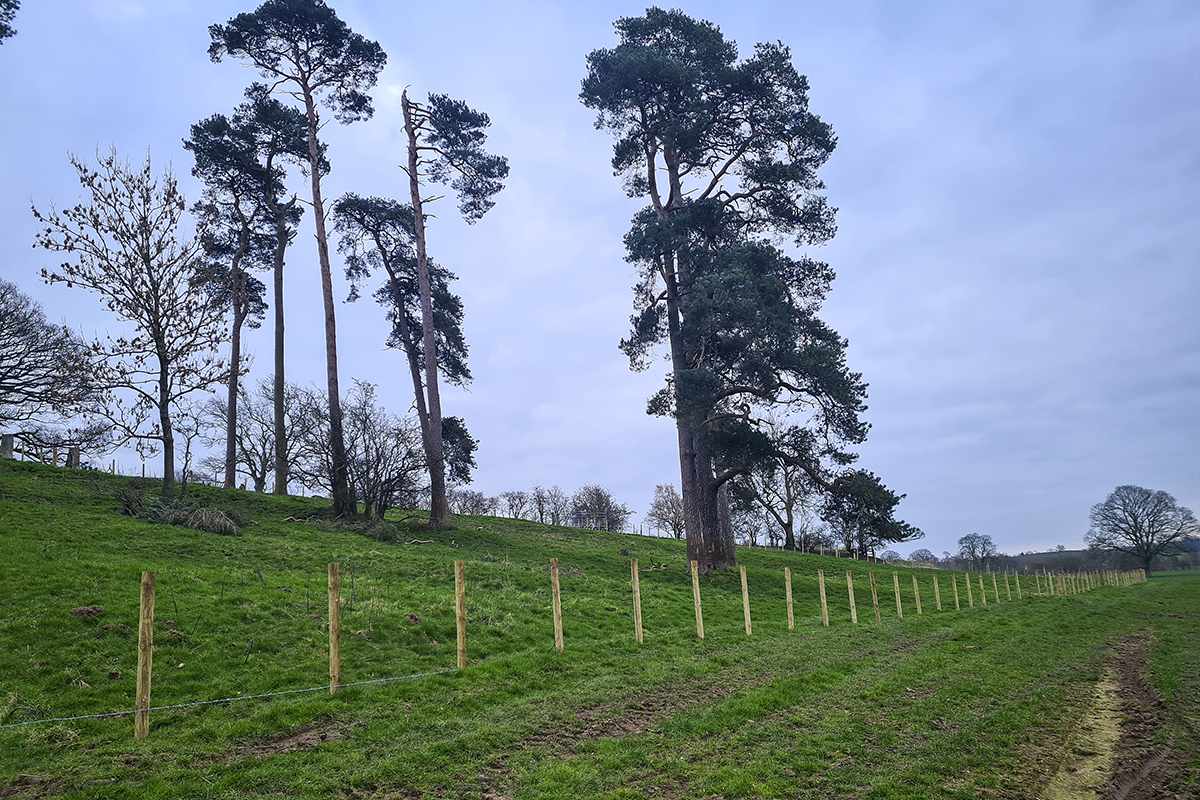Branching out with our new community tree nursery
Growing our community tree nursery in the heart of Penrith

Woodlands for Water (W4W) was developed by The Riverscapes Partnership (the Rivers Trust, Woodland Trust, National Trust and Beaver Trust) and supported by Defra. It aims to create 1,600 hectares of trees in six river catchment areas from Cumbria to Devon by March 2025.
Woodlands for Water funds the time of our Farming and Conservation Officer, Anna Holliday to support landowners and farmers within the Eden catchment area in applying for the England Woodland Creation Offer (EWCO) grant.
As work on the first woodland planting scheme as part of Woodlands for Water gathers pace at Crackenthorpe, we reflect on the project and progress so far.
To date, we have submitted nine EWCO applications, equating to 23.7 ha of woodland creation, with another 20 ha plus of land in the pipeline.
This will create vital wooded riparian corridors and shelter belts and utilise unproductive land to help landowners and farmers to diversify their income.
Different locations suit different approaches, so the projects are a mixture of natural colonisation (the self-seeding of mature trees) and planted sections. For example, as riparian woodland is a key focus for the trust, using tree tubes is not practical as they can be at risk of being swept, so away natural colonisation is the preferred method, supported by deer and rabbit control.
Following a referral by Forestry England, Mr Justin Terry contacted ERT to obtain the free support we offer to landowners and assist him in applying for the EWCO grant.
Justin explains why he was interested in the scheme:
I’m interested in growing trees in general. We started with trees in boxes, then went into a scheme to plant 1.5 acres with the Woodland Trust, and now this. I’m doing it because we can; you have got to have the land and the desire to plant trees … and we do!
Working closely with Anna, Justin chose to submit 3 ha into an EWCO application, with ERT acting as his land agent, submitting and corresponding for the application on his behalf.
Since his application was approved in July 2023, he has completed half of the fencing, enabling some of the natural colonisation to commence. More work is planned for this month and next winter. With three years to complete the work, he is already ahead of the game.

This tree planting area will infill around the existing mature Scots Pine trees creating a varying canopy layer and track boundary, making movement of livestock easier.

An awkward field corner fenced off and ready to colonise naturally from the native mature trees and scrub surrounding the site.
Justin chose to plant half the area with native broadleaf tree species and leave the other half to be colonised naturally by nearby mature native broadleaf trees.
Areas chosen were those that were an awkward fit within his farming system – boggy field corners and steeply sloping banks that would be better suited to provide valuable wildlife habitat instead.
He was keen to also extend existing woodland, creating a wildlife corridor and shelter belt and explains why:
“It’s not just the trees, it’s for the wildlife and creating corridors for them, to have berries and nuts to feed the birds and squirrels and creates a good buffer between land holdings.”
Anna explains the impact this new woodland will have on rivers and the landscape:
“In the future, we hope this scheme will bring more variety and wildlife connectivity to the landscape, with a layered canopy – from native scrub of hawthorn and blackthorn through to tall trees like oak and Scots pine that will hopefully be in our countryside for many years to come, providing centuries of wildlife value in the form of habitat and sustenance for a plethora of species.
“But more than that, we hope the breadth of vegetation and foliage will help to slow the flow of water into the river Eden, which as Justin points out “has to be a good thing!”. By catching rainfall in the leaves and reducing surface run-off, we can slow the flow of water into the river and minimise pollution through nutrient and sediment run-off.”
So how has the whole experience been so far? Justin says he has found ERT “very good” to work with and he has, “met some very interesting people and learnt a lot from the experience – meeting Belinda Lloyd from Natural England was an eye opener for me to let nature do its thing, it is a revelation.”
You could be eligible for the EWCO grant if you want to create more than 1 ha of woodland, which can be in multiple parcels. The EWCO grant allows three years’ capital works period and then the grant funding period is 15 years. The grant pays up to £10,200/ha for capital costs and £350/ha/year for 15 years.
The grant also awards Additional Contribution payments (payments for public benefits) of up to £7500/ha depending on the targeting areas of where the greatest benefits will arise, such as extending existing native woodland and riparian woodland creation.
Anna will come out on-site and use her knowledge and expertise to advise on woodland creation and design. If the EWCO grant is suitable, she can work with the landowner draw up an application on their behalf, all free of charge.
Interested? Call Anna at Eden Rivers Trust on 01768 866788.